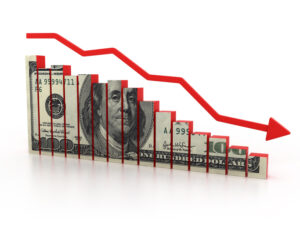Dollar Collapse Could Be The Most Significant Result of The Russia-Ukraine War as Gold Rises, Analyst Warns
The comments below are an edited and abridged synopsis of an article by J.D. Heyes
Journalist Jon Sindreu wonders, “What is money?”, a question that economists have been asking for hundreds of years, before looking at the one Western sanction against Russia that is likely to have lasting consequences.
Sindreu discusses the blocking of Russia’s central bank reserves because it highlights an inherent risk in accumulating foreign assets that will result in military and economic blocs drifting even farther apart.
Following Russia’s invasion of Ukraine, US and Western allies blocked the Russian central bank from accessing the vast majority of its $630 billion of foreign reserve currency. Weaponizing the monetary system against a Group-of-20 country will have lasting repercussions.
The vast majority of more than $15 trillions’ worth of reserves held by the world’s countries is in currency, or paper money, while a much smaller amount is held in gold and other investment assets.
For some time, many economists have equated this currency reserve as akin to savings in a piggy bank, which in turn correspond to investments made abroad in the real economy.
But recent events have revealed that thinking is wrong: With the exception of gold, the other assets are someone else’s liability—someone who can just decide they are worth nothing.
While Russian banks are blocked from accessing reserves, new inflows of dollars and euros, from the sale of oil and other energy, are not blocked. But what the US and its Western allies have done is demonstrate the risk in holding their currencies as reserves as well, which is driving Russian and Chinese pushes to buy more hard currency.
The risk to the dollar’s status is small due to most nations’ alignment with the West and China’s capital controls, but that is changing with actions taken by the US and the West that cuts off countries from spending their reserves.
Stockpiling commodities is an alternative. This creates another incentive for China to reduce its trade surplus by turning to domestic consumption. What can investors do? Buy gold. Many of the world’s central banks will surely be doing it.

